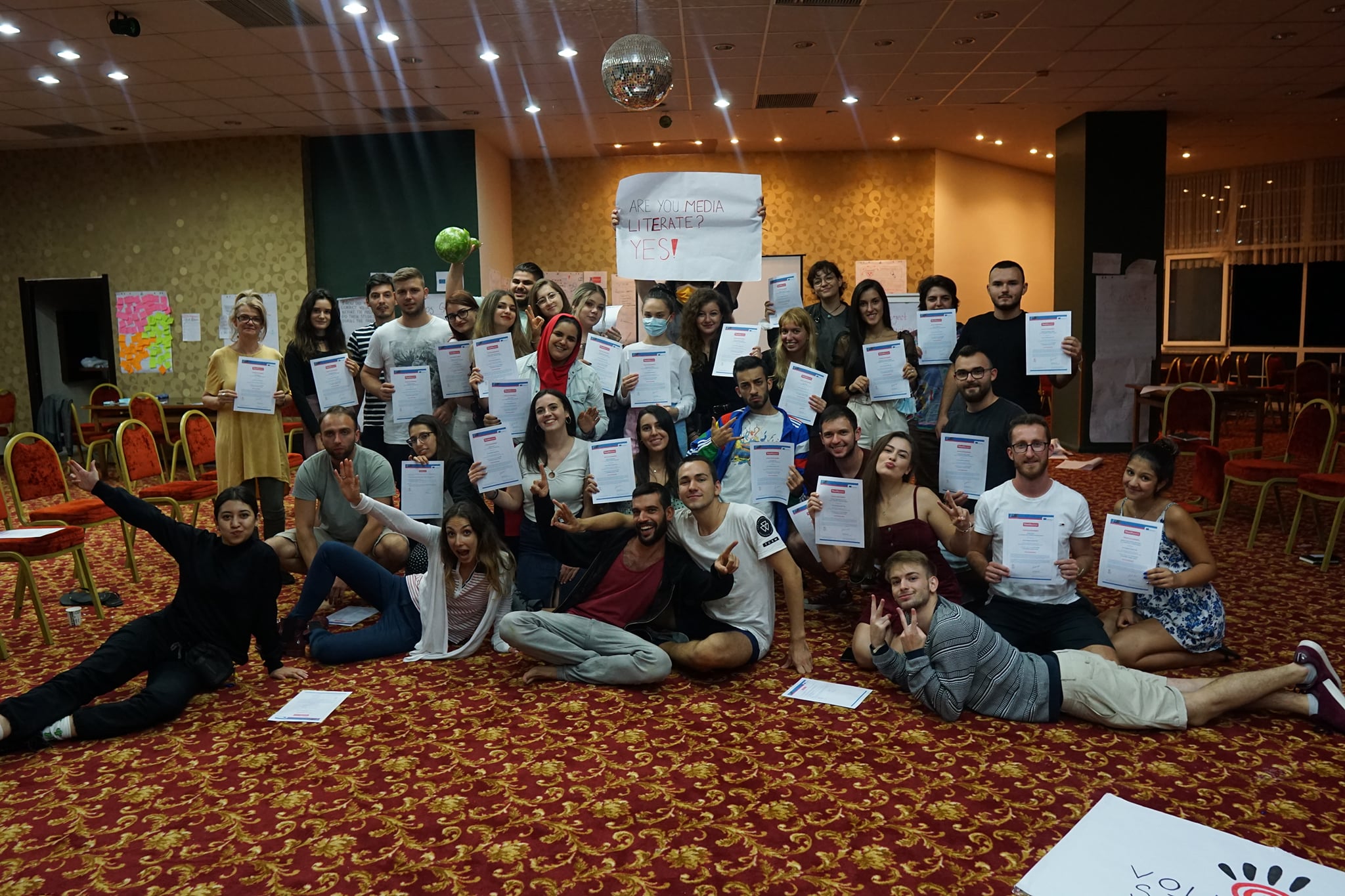We live in a fast-paced world, where the changes, events and news happen incredibly fast. We’re a generation of changes, digitalization and technology. For many, we’re just youngsters who are screen-obsessed. But are we individuals, a group, or generations who live in an online world? Can we make changes by using our virtual world? In a period of a pandemic, when kisses and hugs are highly forbidden and the world has started to view the pros of the technology, we – a group of eight young people decided to travel to Kocaeli, Turkey and to be part of a youth exchange.
‘Are you Media Literate? Yes!’ is the name of the one-week-long youth exchange, in which Macedonia participated among four other countries. As the name suggests, the goal of this youth exchange was to gain knowledge about media literacy. The discussions started with questions about the program Erasmus+ and its pros, the differences between a youth exchange and a training course, short and long-term EVS projects and so on. As a team, we had a chance to present the Youthpass certificate and all the areas it can be used at. We had a huge discussion about formal, non-formal and informal education, which is correlated to the current online classes. We also wrote articles on these topics and edited them in the software Canva. One of the discussion topics was ‘Media in my country’, an especially interesting theme – since we all know that the media nowadays are constantly uploading news about the coronavirus pandemic. ‘What are fake news and how to recognize them?’ was an ongoing question during this youth exchange. We analyzed some media messages and explored the ways of creating them, the techniques which are being used to attract people’s attention, the values, lifestyles and points of view which are being represented or omitted and how might various groups of people understand the media message differently. ‘The role of hate speech in social media’ as a modern society topic caused a bunch of ideas, opinions and attitudes by the participants. ‘Are different religions the cause of hate speech or is it just a personal point of view and experience which makes some individuals take such reckless actions?’ We had to think about ‘Activities of NGOs before and after the pandemic’ and we also recorded a video to represent the newly made changes. The phrase ‘A picture is worth a thousand words’ is also true for social media. The photos and the audio elements are factors that determine whether a specific media message will be popular among the audience. Despite the media literacy discussions, we had a chance to meet different cultures and traditions, to play traditional dances and to eat traditional food. The atmosphere was always in the highest mode, even during the discussions, due to the funny energizers before each session.
We spent seven amazing days, fulfilled with enthusiasm, optimism and welfare which will remain in our memories for a long time. In such a period, we succeeded to stay positive and enjoy the beauty of life. We understood that we are the only ones responsible for our way of living and whether we accept fake news is just our choice. I want to end this reportage with a beautiful quote: ‘To read, write, analyze and estimate the media info which we consume every day and not let them fool us. Be you, be Media Literate!’
Jovana Stojcheska
Photography: Furkan Yıldız

